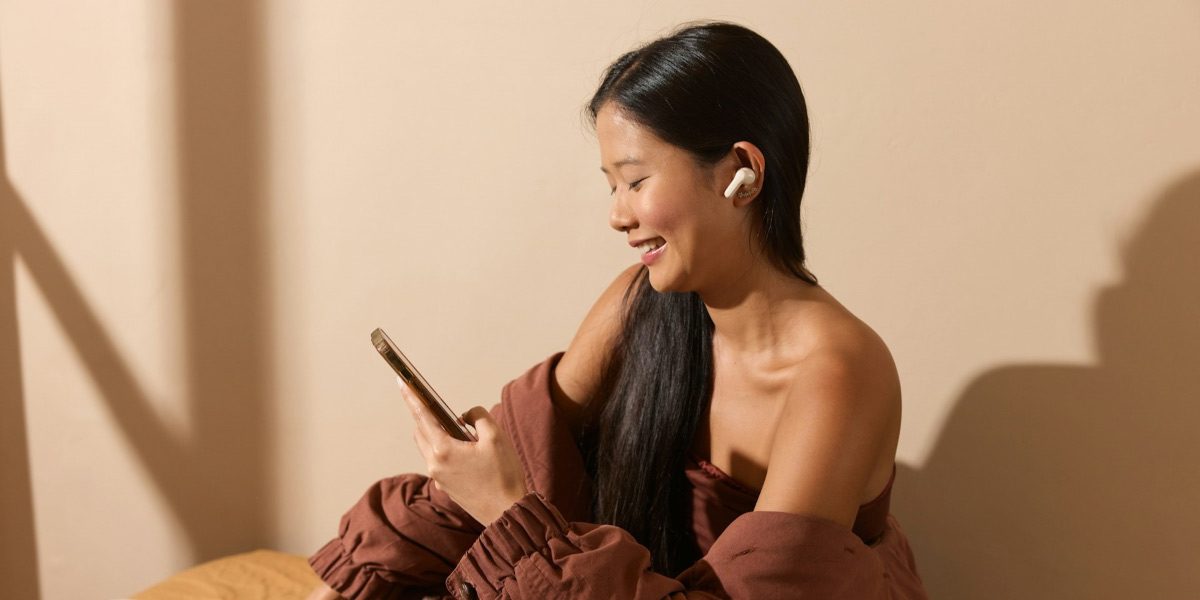The music industry has been transformed by the digital age, offering artists unprecedented opportunities to connect with fans, create innovative content, and distribute their music globally. While traditional record labels and distribution methods once dominated the music landscape, new technologies and platforms have empowered musicians to take control of their careers. From social media to streaming platforms, virtual concerts to AI-assisted composition, artists are leveraging an array of tools to build sustainable careers and redefine success. This article explores how musicians are thriving on emerging platforms, adapting to the digital age’s challenges and opportunities.
Read also: The Welcome Trend of Surprise Shows in New York
Social Media Platforms: Direct Connections with Fans
Social media has become an essential tool for artists, allowing them to build their personal brands, engage with fans, and promote their music without intermediaries.
TikTok: Music Discovery on a Viral Platform
TikTok has revolutionized music discovery, becoming one of the most influential platforms for emerging and established artists. Its short-form video format encourages users to create content around trending songs, often propelling obscure tracks into viral sensations. Songs like Lil Nas X’s Old Town Road and Doja Cat’s Say So gained massive popularity through TikTok, cementing its role as a key player in music promotion.
TikTok’s algorithm ensures content is seen by audiences who are likely to engage with it, creating opportunities for artists to reach millions without extensive marketing budgets. The platform’s interactive features, such as challenges and duets, encourage fans to engage directly with music, turning listeners into collaborators.
Instagram and Twitter: Engaging and Building Communities
Instagram and Twitter remain vital for artists to share updates, promote releases, and interact with their fanbases. Instagram Stories, Reels, and live streams provide visual and interactive content, allowing artists to showcase their creative processes or personal lives. Meanwhile, Twitter serves as a space for real-time conversations, helping musicians engage with fans on trending topics, respond to feedback, and build a sense of community. Consistent interaction on these platforms fosters loyalty and keeps fans invested in an artist’s journey.
Streaming Services: Revolutionizing Music Distribution
Streaming platforms have fundamentally altered how music is consumed and distributed, providing artists with global reach and unparalleled access to data.
Spotify and Apple Music: The New Frontiers of Music Distribution
Spotify and Apple Music are now the dominant platforms for music consumption, giving musicians the ability to reach millions of listeners worldwide. Through playlists such as Spotify’s Discover Weekly and Apple Music’s New Music Daily, artists can gain exposure to diverse audiences. These platforms’ algorithms also analyze user preferences to recommend new tracks, helping lesser-known artists gain visibility organically.
For musicians, the detailed analytics provided by these services—such as listener demographics and geographic locations—offer valuable insights for marketing and touring strategies. These tools enable artists to make data-driven decisions, enhancing their ability to connect with fans and expand their reach.
SoundCloud: A Haven for Independent Artists
SoundCloud has long been a launchpad for independent and experimental artists. Its user-friendly interface allows musicians to upload and share their work freely, fostering creativity and collaboration. Artists like Billie Eilish and Post Malone began their careers by sharing music on SoundCloud, using the platform to build audiences before breaking into mainstream success. For niche genres and underground movements, SoundCloud remains an essential tool for discovery and growth.
Direct-to-Fan Platforms: Empowering Artists
Direct-to-fan platforms are reshaping the music industry by enabling artists to monetize their work while maintaining control over their careers.
Bandcamp: Supporting Independent Musicians
Bandcamp provides a direct avenue for artists to sell music, merchandise, and exclusive content. Unlike streaming platforms, Bandcamp allows musicians to set their own prices and retain a significant share of their earnings. This direct connection fosters a closer relationship between artists and their fans. Initiatives like Bandcamp Fridays, where the platform waives its revenue share, have been instrumental in supporting artists, particularly during the pandemic.
Patreon: Building Sustainable Careers
Patreon has become a popular choice for musicians seeking to generate consistent income. Through subscription-based support, fans can access exclusive content, such as early releases, live streams, or behind-the-scenes insights. Patreon’s model allows artists to cultivate a core group of dedicated supporters, ensuring financial stability and deepening their connection with their audience.
Virtual Concerts and Live Streaming: Reimagining Performances
Virtual concerts and live streaming have emerged as powerful tools for artists to perform, engage, and generate revenue in the digital age.
Twitch and YouTube Live: Interactive Performance Spaces
Twitch and YouTube Live have transformed how artists connect with their audiences. These platforms allow musicians to host live performances, Q&A sessions, and interactive streams, reaching global audiences without geographical limitations. Fans can support artists through donations, subscriptions, or virtual tips, creating new revenue streams. Twitch, traditionally a gaming platform, has seen significant growth in its music category, attracting both emerging and established artists looking to diversify their reach.
Virtual Reality Concerts: Immersive Fan Experiences
Virtual reality (VR) is revolutionizing live music by offering immersive, interactive concert experiences. Artists like Travis Scott and Ariana Grande have hosted VR performances on platforms such as Fortnite, combining music with stunning visual effects and interactive elements. These events attract millions of attendees, blending gaming and music into a unique cultural experience. As VR technology advances, it promises even more opportunities for artists to create innovative, boundary-pushing performances.
Artificial Intelligence in Music: Expanding Creative Possibilities
Artificial intelligence is reshaping the music creation process, offering new tools to assist artists and expand their creative horizons.
AI-Powered Composition Tools: Enhancing Creativity
AI platforms like AIVA and Amper Music allow musicians to experiment with melodies, harmonies, and arrangements. These tools analyze existing music to generate compositions in specific styles or genres, providing inspiration and streamlining the creative process. AI is particularly valuable for commercial applications, such as advertisements or film scoring, where quick and precise music generation is essential.
Ethical Considerations in AI-Generated Music
The rise of AI-generated music has sparked debates about creativity, authorship, and ethics. While AI can mimic styles and produce high-quality compositions, it challenges traditional notions of artistry. Some worry about its potential to devalue human creativity, while others see it as a collaborative tool that enhances artistic expression. Regardless, AI continues to push the boundaries of what’s possible in music creation.
Independent Distribution: Redefining the Music Industry
The digital age has empowered independent artists to bypass traditional record labels, enabling greater creative and financial freedom.
The Rise of DIY Distribution
Platforms like DistroKid, TuneCore, and CD Baby allow artists to distribute their music across major streaming services without relying on a label. These tools democratize the industry, enabling musicians to retain ownership of their work and control their branding. The success of artists like Chance the Rapper, who built his career independently, highlights the potential of this model.
Creative Freedom and Revenue Control
By distributing their music independently, artists can maintain full creative control while keeping a larger share of their revenue. Digital tools also give musicians access to promotional resources, such as social media campaigns and audience analytics, helping them build sustainable careers without the constraints of traditional contracts.
Community Building and Fan Engagement: Strengthening Connections
Engaging directly with fans has become a cornerstone of success for musicians in the digital age.
Online Communities: Creating Loyal Fanbases
Musicians are building online communities through platforms like Discord, Reddit, and private Facebook groups. These spaces allow artists to interact with fans in meaningful ways, fostering loyalty and creating a sense of belonging. By sharing exclusive content, hosting discussions, and involving fans in creative decisions, artists can deepen their connections with their audience.
Personalized Interactions: Humanizing the Artist
Interactive content, such as live Q&A sessions, behind-the-scenes videos, and personalized shoutouts, helps artists build stronger relationships with their fans. These interactions humanize musicians, making them more relatable and fostering long-term support from their audience.
Read also: The Concrete Canvas: Why New York Breeds Experimental Filmmakers
Thriving in the Digital Music Landscape
The digital age has redefined the music industry, offering artists innovative tools and platforms to create, share, and connect. From social media and streaming services to virtual concerts and AI-powered tools, the opportunities for growth and experimentation are endless. Artists who embrace these technologies and prioritize direct fan engagement can build sustainable careers while shaping the future of music.
As the industry continues to evolve, adaptability and creativity remain crucial. Whether through viral TikTok trends, personalized fan experiences, or boundary-pushing VR concerts, musicians in the digital age are finding new ways to thrive, innovate, and redefine what it means to be an artist.
















